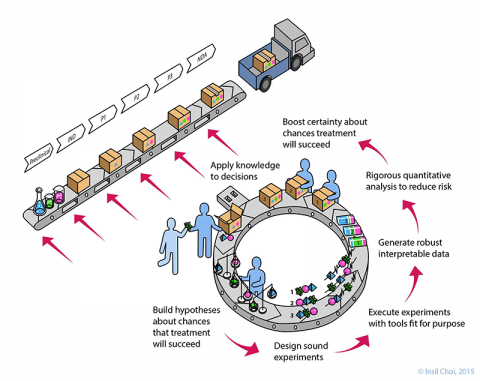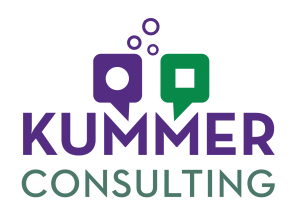From Phase-Driven to Hypothesis-Driven R&D

The traditional mindset of drug development – advancing candidates from phase to phase – often prevents companies from investing resources wisely. Scientists, managers and investors focus their energy on meeting milestones, distracting them from the real question: have we advanced knowledge on how to deliver value to patients?
Rather than centering work on advancing compounds, R&D groups can center their efforts on building knowledge about how to deliver health benefits through improving human biological function. Instead of asking, “What do we need to get to the next phase?” they can ask, “What do providers, patients, and payers need to know about this treatment to make the best decision for the patient?” They can visualize R&D as a series of experimental cycles:
- Build hypotheses about chances that treatment will succeed
- Design sound experiments
- Execute experiments with tools fit-for-purpose
- Generate robust, interpretable data
- Rigorous quantitative analysis to reduce risk
- Boost certainty about chances treatment will succeed
- Apply knowledge to decisions.
This paper outlines the limitations of the current industry model, and shows how a hypothesis-driven mindset generates powerful new ways to deliver therapeutic value.
